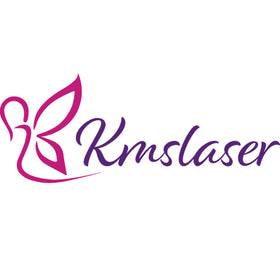Are you considering introducing shockwave to your beauty or wellness business? Have you heard the terms 'shockwave' and 'laser' used interchangeably and wondering what the difference is between them? Chances are, if you're reading this blog post then one of these two treatments has piqued your interest. Delve in deeper as we explore the differences between laser and shockwave, assess their respective benefits, uncover how they can help deliver better results for your clients – while also doing so economically.
What is shockwave therapy and how it different from laser therapy
If you're dealing with chronic pain or a lingering injury, shockwave therapy and laser therapy may be two treatments that you have considered. So, what's the difference between these two therapies? Shockwave therapy is a non-invasive technique that uses high-frequency sound waves to stimulate the body's natural healing processes. This treatment is often used to target musculoskeletal issues such as tendinitis and plantar fasciitis. Conversely, laser therapy uses focused light to penetrate deep into the body's tissues and promote healing. While both treatments have been proven effective in reducing pain and promoting healing, they work in very different ways. So, when it comes to shockwave therapy vs. laser therapy , it's important to consult with your healthcare professional to determine which treatment is right for you.
Benefits of shockwave therapy for certain medical conditions
For those struggling with certain medical conditions, like plantar fasciitis or tennis elbow, traditional treatments like rest , ice , and physical therapy may not be enough to provide sufficient relief. That's where shockwave therapy comes in. This non-invasive treatment involves using high-frequency sound waves to target affected areas and promote healing. Patients typically report feeling minimal discomfort during the procedure, and many experience noticeable improvement after just a few sessions. Shockwave therapy has been shown to increase blood flow, reduce inflammation, and stimulate the growth of new tissue , making it a promising option for those seeking an alternative to more invasive treatments.
How to choose between the two treatments
When it comes to choosing between two different treatments, the decision can often feel overwhelming. It's important to keep in mind that no two individuals are the same, and what works for one person may not work for another. Take the time to gather all the information available to you, including the potential side effects and the success rates of each treatment. Consider your own individual needs and preferences, such as the amount of time and money you're willing to invest in treatment.Consulting with a trusted healthcare professional can also be extremely helpful in making this decision. Ultimately, it's important to trust your gut and choose the treatment that feels best for you.
What are the potential side effects of shockwave and laser treatments
When it comes to medical treatments, there are often potential side effects to consider. This is true for both shockwave and laser treatments. Shockwave therapy can cause some discomfort during and after treatment , including soreness , redness , and bruising. However, these side effects typically subside within a few days. Meanwhile, laser treatment can cause blistering, scarring , and changes in skin color. It's important to note that these side effects are usually rare and temporary, but it's always wise to talk to your healthcare provider about the potential risks before undergoing any treatment. Overall, while shockwave and laser treatments can be effective for a variety of conditions, it's important to be aware of the potential side effects so you can make an informed decision about your healthcare.
Potential risks associated with using these therapies
There's no denying that many alternative therapies have gained popularity in recent years, offering what seems like a natural and holistic approach to treating ailments. However, it's important to remember that all therapies come with some level of risk. Even seemingly innocuous practices like acupuncture or herbal remedies can lead to adverse reactions or complications if not administered correctly or in appropriate doses. Additionally, some alternative therapies may interact negatively with prescription medications or exacerbate existing health problems. That's not to say that these therapies should be avoided altogether – rather, patients should be informed of the potential risks and speak with a healthcare professional before trying a new treatment.
Cost comparison between shockwave and laser treatments
Are you wondering which treatment option is more budget-friendly: shockwave or laser? It's a valid concern, as medical procedures can come with a hefty price tag. Shockwave therapy involves high-energy shockwaves that travel through the skin to stimulate healing in the affected area. On the other hand, laser therapy uses specific wavelengths of light to penetrate deep into the skin and promote tissue repair. When it comes to cost,shockwave therapy tends to be less expensive than laser therapy, but the cost will depend on the practitioner and the number of sessions needed. Of course, cost should not be the sole determining factor when it comes to seeking medical treatment, as the benefits to your health and well-being are priceless.
All in all, shockwave and laser therapy are both effective ways of treating medical conditions. They offer different benefits, so it’s important to understand their differences before deciding which one to go for. When choosing a treatment, be sure to consult with your doctor and discuss the potential risks and side effects. Although these treatments can be expensive, there may be financing options available which could help bring down the overall cost. Ultimately, how beneficial these therapies will be for you depends largely on what your individual needs are and what fits your lifestyle best. Regardless of which option you choose, it is important to get a thorough examination from a qualified physician before beginning these forms of therapy.

